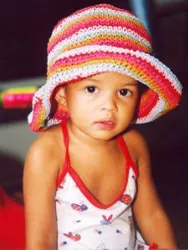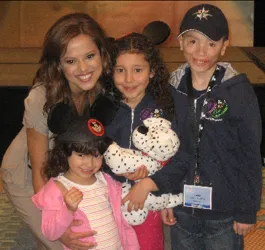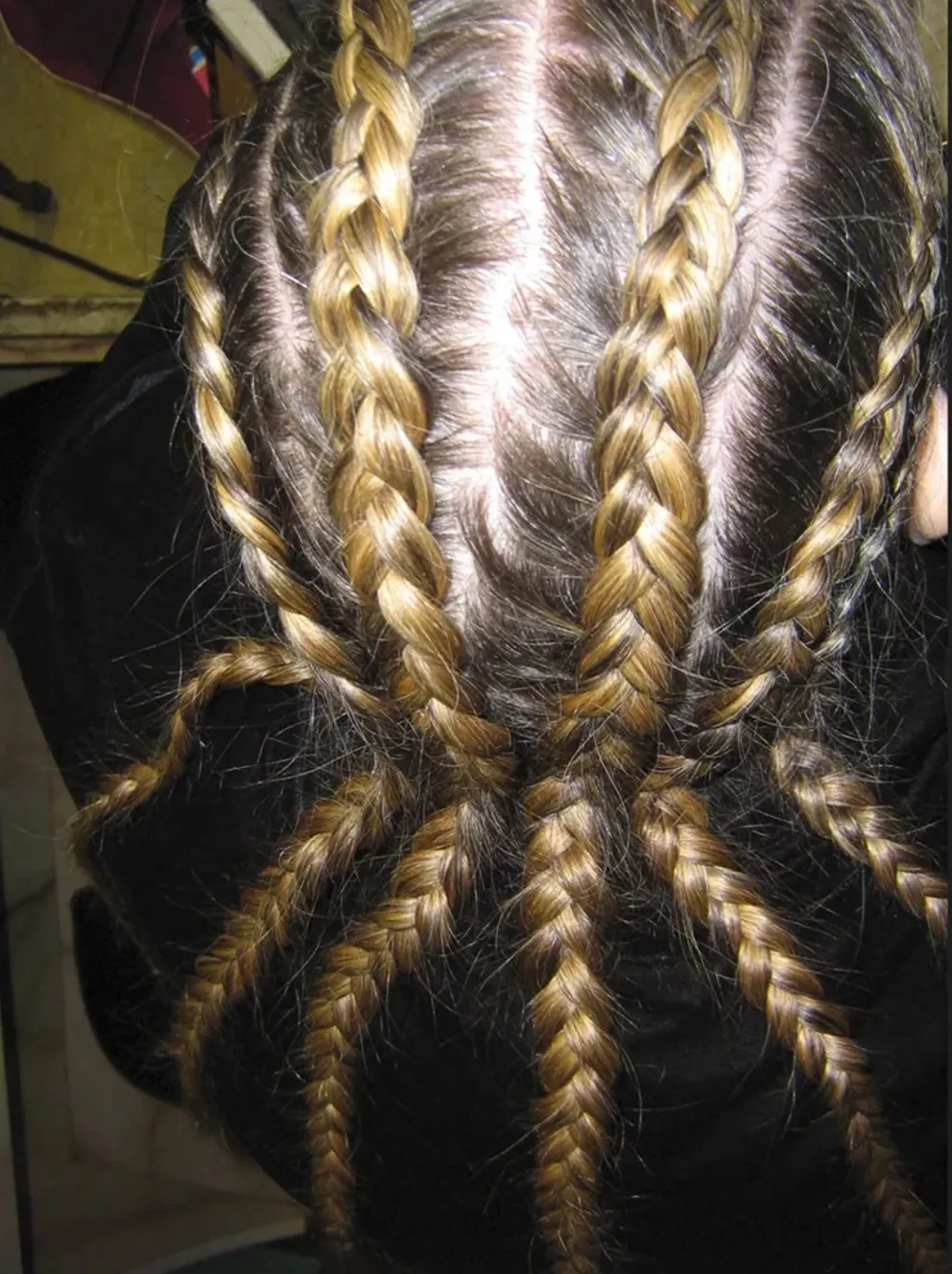
Children With Autism Interaction Tips
IS IT POSSIBLE TO INTERACT WITH CHILDREN WITH AUTISM?
Steps for including children with autism in activities
When you go to the grocery store, the mall or even the movies- have you encountered a family with a child with autism and fumbled for the appropriate way to interact?
Speaking honestly, most of us who don't have frequent contact with children with autism may not always know if we should smile and say the same silly things we usually say to kids. For the families, it's an awkward or even downright painful situation that occurs over and over again.
Reactions to children with autism often border on cruelty-- not out of malice but simply because so many people have no clue how to behave or react.
And it happens in places that might surprise you, including church or other houses of worship, where you'd expect people to be particularly sensitive to special needs. That's what motivated Kathy Labosh to write a series of books to help families of children with autism.
"The Child with Autism Learns the Faith" (2007) is the latest installment and while it's geared towards teaching children with autism about faith, the information is truly invaluable for everyone who interacts with children.
Whether you're a parent with an autistic child, a teacher, or a church leader, Labosh can help you understand how children with autism learn and how to best communicate with them.
The entire series is based on Labosh's personal experience with her own children. "Both of our boys are autistic," says Labosh. "And I understand the frustration and sense of aloneness that so many families like ours face."
She said "I wanted to reach out and help others learn from our experiences. I also want people that we encounter to understand how a child with autism learns and thinks; what prompts them to behave in certain ways."
And Labosh's message couldn't be more timely or compelling. According to the Autism Society of America, an estimated 1.5 million Americans and their families are affected by autism.
The ASA points to a 2007 Centers for Disease Control report that states 1 in 150 children in America today have an autism spectrum disorder (ASD) as evidence that autism is a national health crisis that costs the U.S. at least $35 billion annually.
"The Child with Autism Learns the Faith" strives to enlighten readers about how autism affects children and equally important, how to include them in lessons and group activities that we take for granted.
"People need to understand that first and foremost, autism is a physical disability of the brain," says Labosh. "Autism affects the brain in the same way that blindness affects the eye or deafness affects the ear."
Labosh carefully points out that although people with autism have physical abnormalities in their brain structure, the effects are behavioral.
She says the first thing teachers, caregivers and families must understand is that autism can not be ‘disciplined away.' Here are some more key points from "The Child with Autism Learns the Faith:"
- Children with autism have trouble processing information.
- Children with autism take in everything at once- no special importance is attached to characters or objects in pictures.
- Noisy rooms are stressful for children with autism because they can not filter out the background noise.
While "The Child with Autism Learns the Faith" helps readers gain a better understanding of how to communicate with children with autism in a classroom or social setting, the book focuses on the importance of incorporating those teaching methods in a faith-based setting and even includes more than a dozen lesson plans that parents and church educators can use at home or in a church setting.
"My goal with this book is to help exceptional families teach their children about faith," says Labosh.
"We were once asked to leave a cathedral because one of my sons was babbling. That was a crystallizing moment for me-I realized so many families longed to be included in their respective faith communities but worried about the ramifications. I strongly believe that a disabled child elicits more patience, love and compassion than 100 sermons. Our church homes are not whole without them."
About the author
Kathy Labosh graduated from Penn State and became an economist. She is now a stay at home mom to Sam and Nicky, both of whom are children with autism. Her mission is now to help others in similar situations.
Kathy published her first book in "The Child with Autism" series in 2004, and since then has published three more. The Autism Society of America has endorsed the series and is in the process of publishing its own "Child with Autism" series booklet, "The Child with Autism Grows Up."
Kathy has also formed a Special Education Religion Class and is currently developing a specialized curriculum for children with autism. She is also a highly requested public speaker. Kathy was a presenter at the 2005 National Catholic Educators conference and frequently speaks to groups near her home in Pennsylvania.
She has also received an Honorable Mention for Children's Fiction from Writer's Digest.
"The Child with Autism Learns the Faith"
Publisher: Labosh Publishing
More Information
Please follow me on Twitter at: http://Twitter.com/HairBoutique. I look forward to meeting new people from all walks of Twitter and learning from their Tweets. Visit us at Hairboutique.com located at: http://www.HairBoutique.com, on Facebook, MySpace and YouTube.
Thank you for visiting us at The HairBoutique Blog and for leaving your comments. They are very much appreciated. We apologize in advance but must remove any direct advertisements or solicitations.
Social Media Network Information
Please follow us on Twitter at: https://Twitter.com/HairBoutique. I look forward to meeting new people from all walks of Twitter and learning from their Tweets.
















